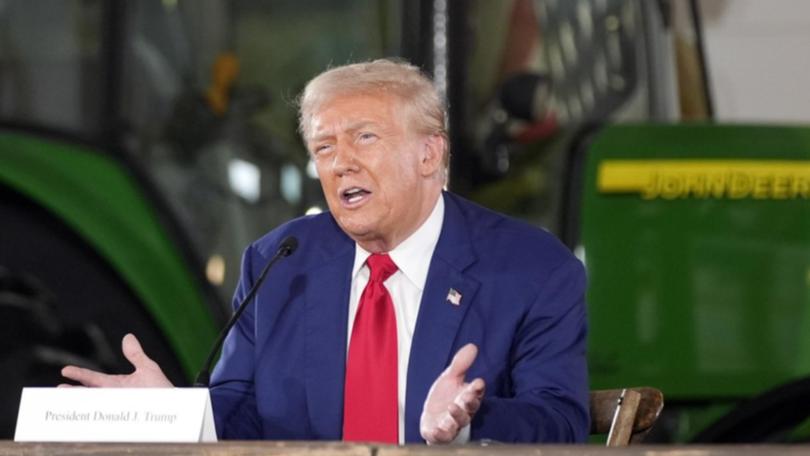US intelligence agency says Russia is producing the most amount of AI content aimed 'to boost Trump vote'
A US intelligence agency says AI content produced by Russia is ‘consistent with their efforts to boost the former president Donald Trump's candidacy’.

Russia has generated more AI content to influence the US presidential election than any other foreign power as part of its broader effort to boost Republican candidate Donald Trump over Democrat Kamala Harris, a US intelligence official says.
The official from the Office of the Director of National Intelligence (ODNI), speaking on condition of anonymity, commented in a briefing to reporters on the alleged use of AI by Russia and other countries to influence the November 5 vote.
AI content produced by Moscow is “consistent with Russia’s broader efforts to boost the former president’s (Trump) candidacy and denigrate the vice president (Harris) and the Democratic Party, including through conspiratorial narratives,” he said.
Sign up to The Nightly's newsletters.
Get the first look at the digital newspaper, curated daily stories and breaking headlines delivered to your inbox.
By continuing you agree to our Terms and Privacy Policy.The Russian embassy in Washington did not immediately respond to a request for comment. Russia previously has denied interfering in the US election.
Like other forms of artificial intelligence, generative AI learns from past data how to take actions. Using that training, it creates new content like text, pictures and videos that appear to have been produced by humans.
The ODNI official said Russia is generating more AI content to influence the November election than any other country but did not provide a volume of that AI content.
He said Russia was a much more sophisticated actor and had a better understanding of how US elections work and appropriate targets.
Asked how Russia was disseminating AI content, the official pointed to a July 9 Justice Department announcement of the disruption of an alleged Moscow-backed operation that used AI-enhanced social media accounts to spread pro-Kremlin messages in the US and elsewhere.
The official said “Russian influence actors” staged a widely reported video in which a woman claimed she was a victim of a hit-and-run car accident by Harris. The video, however, was staged rather than produced through AI, he said.
Microsoft said last week its research showed that the video was the work of a covert Russian disinformation operation.
China has been using AI content in an attempt to influence how it is perceived worldwide, but not to sway the outcome of the US election, the official said.
“China is using AI in broader influence operations seeking to shape global views of China and amplify divisive US political issues,” the official said. “We are not yet seeing China use AI for any specific operations targeting US election outcomes.”
Iranian influence actors have used AI to help generate posts for social media and “write inauthentic news articles for websites that claim to be real news sites,” the official said.
The content created by the Iranian actors is in English and Spanish. It has targeted American voters “across the political spectrum on polarising issues” such as Israel and the conflict in Gaza, and on the presidential candidates, the official said.
The Iranian mission to the United Nations did not immediately respond to a request for comment. Iran has previously denied interfering in the US vote.
